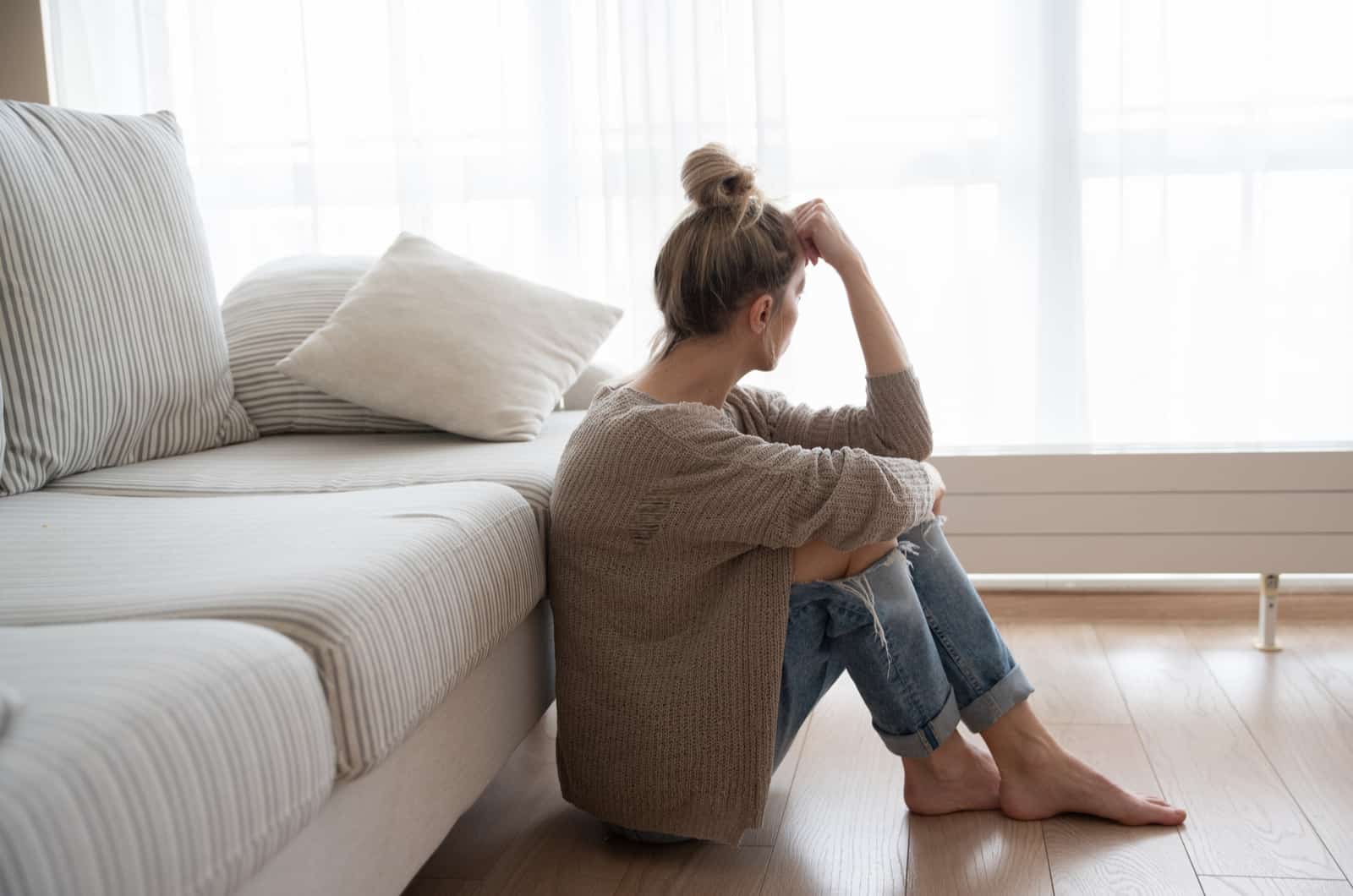Why Do I Need Constant Reassurance? 7 Reasons And Treatment
You keep asking yourself: “Why do I need constant reassurance?” Well, reassurance is a crucial element in human relationships. It helps us feel safe and secure. We all need reassurance from time to time, whether from our parents, friends, or romantic partners.
Reassuring someone can help them feel better about themselves and their situation. However, sometimes we need constant reassurance to feel grounded in the present moment and avoid getting stuck in the past or future.
If you feel like you need constant validation, it might be time for you to reevaluate your life and see if there are other ways of being more self-assured without needing it all the time. Is it your mental health, too much free time, overthinking, or a love language? Find out here.
Why Do I Need Constant Reassurance? 7 Explanations

Why do I always need reassurance in a relationship? Here is why:
1. OCD
OCD is often a misunderstood disorder. It makes people question their own sanity and sometimes affects their relationships.
People with OCD are usually quite anxious about their obsessive thoughts and compulsions. They constantly question themselves about their actions and check for mistakes in their work. They need a lot of reassurance to calm down and feel secure.
As this is a common issue, there are many ways to help people with OCD deal with it. A constant need for reassurance can be a symptom of OCD, and it can be challenging to control the urge and stop seeking reassurance.
2. Anxiety
Why do I need constant reassurance? What is wrong with me? Is this a red flag, and why do I have relationship anxiety? These are some of the questions people with anxiety ask themselves.
Anxiety is a condition that affects people in many ways. It can cause feelings of fear, worry, or dread, leading to an increased heart rate, sweating, and trembling. One reason you might feel anxious is that you need constant reassurance from others to feel safe.
This could create a cycle where you constantly seek reassurance from your partner or friends but never really get it as they cannot provide what you need in the way you want them to.
3. Love language

Love languages are an essential part of a healthy relationship. They help us understand how our partner communicates with us and makes us feel loved.
You might think that giving your partner constant reassurance is the best way to do this, but it might not be the best idea. Your need for constant reassurance might actually be because you don’t feel loved without it.
To maintain a healthy relationship, we need to find out what our partners’ love languages are so we can better understand them and give them what they like most. Look for a self-sufficient way to do self-care and find out what happens when you receive less reassurance.
4. No communication
Are you seriously not talking, or are you just overthinking your relationship? We interact with people in different ways every day. Sometimes these relationships end abruptly or when we feel the person has betrayed us.
It can be difficult to move on in those moments because we often seek out the person who betrayed us for reassurance that they are still our friends. This can be seen as a form of unhealthy and unproductive codependency.
5. No help
When your partner (you, in this case) is constantly asking for reassurance, it can be very frustrating and draining. This can lead to a lot of arguments and misunderstandings. It is important to remember that this behavior is not intentional.
You will need to reassure your partner that you are there for them and will always be there for them to offer you examples of reassurance. Of course, not offering help might also be because your partner has an ego problem or plays games with you.
6. Not enough quality time

Not enough quality time with your partner is a relationship killer. As a busy working woman or man, it can be difficult to find time for your partner. With the constant demands of work and family, sometimes it’s hard to spend enough quality time together.
Yes, if you don’t spend enough time together, your partner might feel like the relationship is ending, which might make them ask for more reassurance as a coping mechanism.
Feeling constantly under pressure is so overwhelming that you may feel the need to seek out reassurance from outside sources, even without knowing what you are doing.
7. No physical touch
A lack of physical touch from a partner is one of the reasons you may need constant reassurance from your significant other. Reassurance means different things to different people.
For some, it may be about asking for help when they are going through a hard time. Others may need reassurance when they feel insecure or vulnerable. This is why they ask themselves: Why do I need constant reassurance?
A lack of physical touch can be a big deal for some couples. It can lead to loneliness and anxiety, which can lead to more problems in the relationship.
Dealing With Excessive Reassurance Seeking In 5 Ways

Your friends and loved ones might be asking themselves how to deal with someone who needs constant reassurance. Here is how to stop needing constant reassurance in a relationship:
• Recognize that this behavior is a coping mechanism: Some people turn to overeating, others turn to drugs or drinking, and others might smoke cigarettes or be constantly busy. Yours are words of affirmation.
• Be compassionate and supportive of yourself: There is no one-size-fits-all approach to achieving your goals, and sometimes the best way to find success is by accepting and supporting yourself. This can be difficult for some people, so try focusing on the positives.
• Consult a mental health professional: It is critical to address the issue before it becomes a bigger problem. There are many benefits to seeking help early on, and contacting a professional can help keep your mental health in check.
• Understand that it is your responsibility to help yourself: If you struggle with something, someone has told you that this is because you are “not trying hard enough.” This is far from the truth. The best way to learn is by investing in yourself and taking the initiative.
• Don’t become defensive or angry: Yes, this takes care of the short-term, but your problem is still there every single day. When you’re feeling emotionally charged, it can be hard to think clearly and see the situation for what it is.
Reassurance seeking is a behavior where individuals ask for reassurance or validation to avoid anxiety. Reassurance seeking is a common symptom of anxiety in romantic relationships.
It is when someone repeatedly asks others for reassurance that they are not alone in their experiences. This soon backfires and looks like constantly asking “Do you love me?” to family members and partners.
They might ask for reassurance from friends, caregivers, or loved ones or seek it from the media or healthcare providers. It is not a new phenomenon and has been around for centuries. In fact, it is just a way of asking for self-love from others.
The difference now is that the internet and social media have made it easier for individuals to seek out reassurance from others.
How Can I Stop Being So Insecure?

We all experience insecurity at some point in our lives. It is a part of human nature to feel insecure, and it is not easy to eliminate. However, you can ensure that you don’t let your insecurities control your life by following these five tips.
• Be confident about your skills and abilities.
• Stay focused on what you have to do next.
• Don’t compare yourself with others.
• Develop healthy relationships with people who support you.
• Focus on what’s good in your life.
Insecurity is a feeling that can be difficult to shake. It can make you feel like you are not good enough or don’t deserve the things you have. It can also make it hard for you to trust others and form relationships with them.
There is a lot of pressure put on us to be perfect, and it can be exhausting. It may seem like the only way to stop being insecure is to stop trying and give up. But this would be the wrong approach.
The key is to find a way to feel confident about yourself and your abilities, even if you are not yet at your peak. Once you reach it, don’t be afraid to show off your confidence!
Understand Your Anxiety Or OCD

Constant reassurance is a way of living that many people find hard to let go of. It’s a security blanket we use to make us feel safe and secure.
But, the truth is that constant reassurance is an unhealthy way of living, and to live a healthy life, you need to stop giving in to your emotions and start trusting your judgment instead.
After reading my article, I hope that your question “Why do I need constant reassurance?” is answered, and you know that you are dealing with problems relating to your attachment style, low self-esteem, obsessive-compulsive disorder, or even anxiety disorder.






